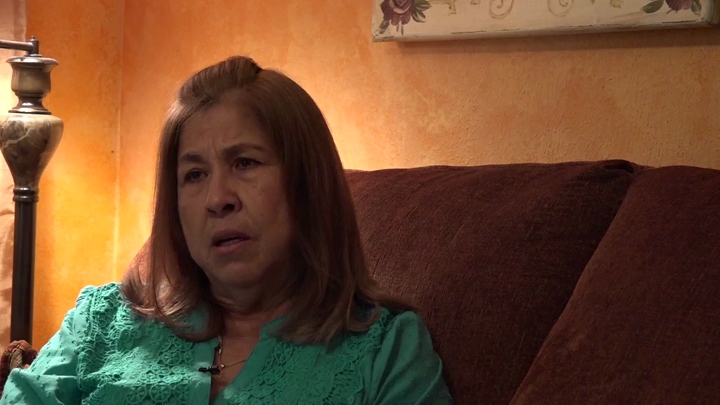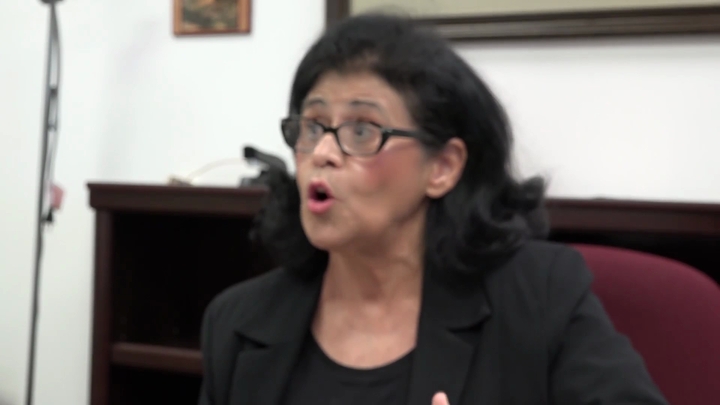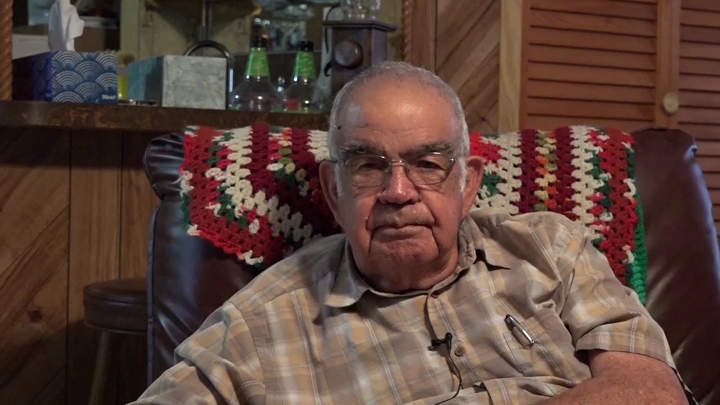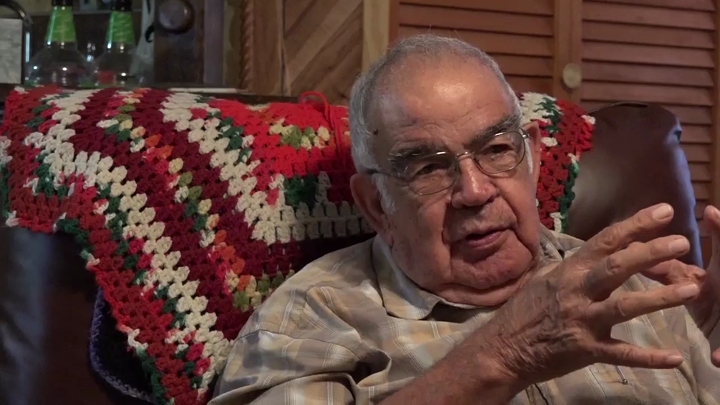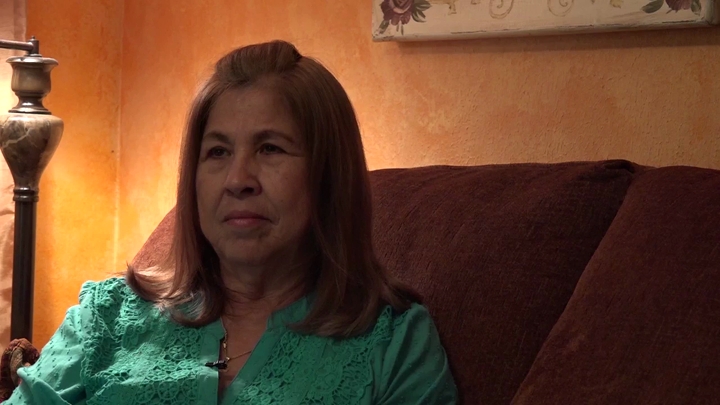Abalos / Cultural Shock
sign up or sign in to add/edit transcript
Zapata: What kinds of culture shock did you experience? Abalos: Well, the main thing was being around Anglos. I had never seen skates before. I had never seen anyone that had skates. When I lived on the south side we did not have sidewalks. You know, we were the last area of town that got sidewalks, we were the last area of town that got paved streets. You read about that and people say that and people say, "nah"- but it is true. We lived it. When it rained, we would get out there and play because the water was high enough we could splash in it. There were no streets and there were no ditches for the water to go. When I moved to this other part of town, which is now all part of the south side, then it was not. There were paved sidewalks, there were paved streets, our neighbor had skates, and I learned to skate. I had never eaten pizza. I was in the 5th grade- in 5th grade I was invited to a slumber party. I had never been to a slumber party. My mom had to go buy my pajamas so I could go. We always slept in whatever we had on that day, or shirts and shorts. I went to a slumber and had pizza for the first time. You know, these kinds of things. Where I went from being the majority race to a minority race, and no African Americans, just Hispanics and Anglos. And very few Hispanics, like I said. Zapata: How did the students and the teachers treat you and the other Hispanics at Zavala for the most part? Abalos: Honestly, the teachers that I had- every teacher I had at that school was fine. They were not, I would not say they were racist. Some of the girls were catty, you know the usual girl thing. But, aside from that, I would say that it really was not a big racist thing. I have good memories of the teachers, even the hard one because I learned so much from that teacher. I always wondered though what the others who did not have a strong personality how did they cope. But I did well. So I was okay with her. I learned to take my time and not say anything until I knew what I was saying. So it was okay. Zapata: So what high school- you went into junior high you said it was Ector? Abalos: Yes, it was Ector. I went to 7th grade at Ector. Right before the 10th grade, my family moved to this side of town, the west side. So I went to Odessa High School for one year. Then, as soon as I got a car, I went back to Ector and graduated from Ector in 1971. Zapata: Why was that? Abalos: All my friends were there. Again, I moved to another school that was way majority Anglo. Frankly, I wanted to go back to my school, and once I got a car, my parents were okay with it. I was able to do it because I was in ROTC and they did not have an ROTC at Odessa High School. Otherwise, I would not have been able to go because I was in the district of Odessa High School. And, that was in itself an experience, too. When I went to Ector, I never saw anybody smoke, and that was the bad side of town, supposedly. I never saw anybody smoke. When I went to Odessa High School, they had an area called nicotine alley. I never heard of such a thing and seen so many young kids openly smoking! That was a shock to me, but anyway, Odessa High School was okay. But frankly, I wanted to go back to and graduate with people I had been to school with all of my life- from elementary to high school. Whether, it was when I went to school at Milam or I went to school at Zavala, I had known these people for a long time and wanted to go back there.
| Interview | Interview with Delma Abalos |
| Subjects | Housing › Neighborhoods › Residential Segregation |
| Race Relations › Anglo-Mexican Race Relations | |
| Geography | |
| Geography › Geographical Descriptions | |
| Geography › Places (Cities, Towns, Neighborhoods, and Intersections) | |
| Geography › Geographic Disparities in Infrastructure | |
| Education › Education and Integration | |
| Education › Teachers and Administrators | |
| Tags | Zavala Elementary School, Odessa, TX |
| El Magnet at Milam Elementary School, Odessa, TX | |
| sign up or sign in to add/edit tags | |
| Interview date | 2016-07-14 |
| Interview source | CRBB Summer 2016 |
| Interviewees | Abalos, Delma |
| Interviewers | Moye, Todd |
| Wisely, Karen | |
| Zapata, Joel | |
| Locations | Odessa, TX |
| Duration | 00:05:04 |
| Citation | "Cultural Shock," from Delma Abalos oral history interview with Todd Moye, Karen Wisely, and Joel Zapata, July 14, 2016, Odessa, TX, Civil Rights in Black and Brown Interview Database, https://crbb.tcu.edu/clips/2207/cultural-shock, accessed February 19, 2026 |


